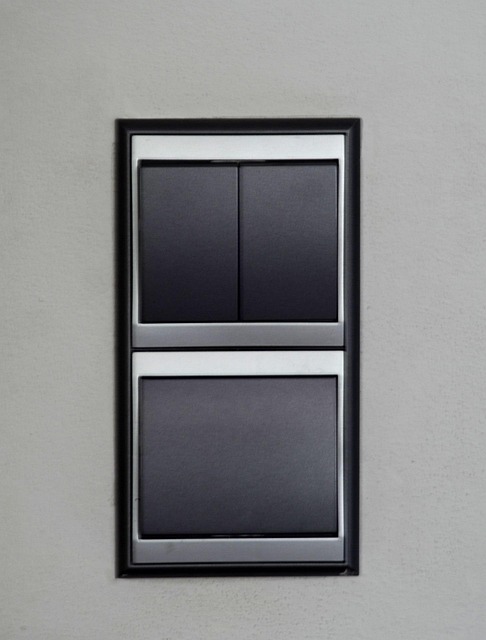Essential Guide to Whole House Generator Costs: What Every Homeowner Needs to Know
In an era where power outages are becoming increasingly common due to natural disasters and deteriorating infrastructure, whole house generators are emerging as a vital staple for homeowners. While they provide peace of mind and uninterrupted electrical service during outages, it's essential to consider the financial implications of installing one. Here's a detailed breakdown of the costs involved when purchasing and installing a whole house generator.

Understanding Power Outage Solutions for Your Home
Power outages can happen for numerous reasons: severe storms, grid failures, or scheduled maintenance by utility companies. A whole house generator provides automatic backup power when your main electrical supply fails. Unlike portable generators, standby systems connect directly to your home’s electrical panel and natural gas line or propane tank, activating within seconds of detecting an outage. These systems can power essential appliances like refrigerators and HVAC systems, or even your entire home, depending on the unit’s capacity. The peace of mind that comes from knowing your home will maintain power during emergencies makes these systems increasingly popular, despite their significant upfront cost.
Standby Generator Essentials: Types and Capacities
When selecting a whole house generator, understanding the different types and capacities is crucial. Standby generators typically come in three main categories: essential circuit, managed whole-house, and complete whole-house systems. Essential circuit generators (7-12 kW) power only your most critical appliances and systems. Managed whole-house generators (16-22 kW) can run most of your home’s systems but may require load management. Complete whole-house generators (22-48+ kW) can power everything simultaneously, including multiple air conditioners and electric vehicle chargers.
Your choice depends largely on your home’s square footage, the number of high-demand appliances, and your comfort requirements during outages. A professional assessment can determine precisely what size generator would best meet your needs without unnecessary overspending.
Home Backup Simplified: Installation Considerations
Installation represents a significant portion of your overall generator investment. The process involves multiple steps: site preparation, concrete pad installation, transfer switch setup, gas line connection, electrical wiring, and final testing. Factors that can influence installation costs include:
-
Distance from your home to the gas meter or propane tank
-
Complexity of electrical panel integration
-
Local permit requirements and inspection fees
-
Accessibility of the installation location
-
Need for landscape restoration after installation
Most manufacturers recommend professional installation by certified technicians to ensure safety, proper function, and warranty protection. DIY installation is generally not advisable and may violate local codes or insurance requirements.
Calculating Generator Costs: Purchase, Installation, and Ownership
The total investment for a whole house generator extends beyond the initial purchase price. Understanding these costs helps homeowners budget accurately and avoid surprises.
Initial costs include the generator unit itself ($2,000-$20,000+), installation labor ($2,000-$5,000), electrical work ($500-$2,000), and permits ($50-$500). Ongoing expenses include annual maintenance ($200-$500 per year), fuel costs during operation, and potential repairs over the generator’s lifetime.
Higher-quality generators typically offer longer warranties and better reliability, potentially saving money over time despite higher upfront costs. When calculating long-term value, consider the generator’s expected lifespan (typically 10-30 years depending on quality and maintenance) and the estimated number of hours it will run annually in your location.
Smart Energy Investments: Comparing Generator Systems
When evaluating different generator systems, comparing leading manufacturers and models can help you make an informed decision that balances cost with reliability and features.
| Generator Brand | Power Range | Key Features | Average Cost Range |
|---|---|---|---|
| Generac | 7-150 kW | Mobile monitoring, automatic weekly tests, longest history in the market | $3,500-$15,000 |
| Kohler | 8-150 kW | Fast response time (10 seconds), premium engine quality, commercial-grade | $4,000-$15,500 |
| Briggs & Stratton | 10-48 kW | Compact design, quieter operation, affordable maintenance | $3,000-$12,000 |
| Cummins | 13-150 kW | Exceptional durability, less sensitive to poor fuel quality, best for extreme conditions | $4,500-$17,000 |
| Champion | 8.5-14 kW | Budget-friendly, 10-year limited warranty, weather-protective enclosure | $2,800-$5,000 |
Prices, rates, or cost estimates mentioned in this article are based on the latest available information but may change over time. Independent research is advised before making financial decisions.
The total investment for a standby generator system, including purchase and professional installation, typically ranges from $6,000 for small essential-circuits systems to over $30,000 for large whole-house solutions. Location significantly impacts costs—installation in regions with stricter building codes or challenging access may cost 15-30% more than the national average.
Long-Term Value and Return on Investment
Beyond the immediate benefit of keeping your home powered during outages, whole house generators can provide long-term value in several ways. Many homeowners see increased property values—reports suggest homes with standby generators can command 3-5% higher selling prices in areas prone to power outages. They also prevent costly problems like frozen pipes, food spoilage, and water damage from non-functioning sump pumps.
Insurance companies may offer premium discounts for homes with standby generators, recognizing their role in preventing claims. Additionally, for homeowners who work remotely or run businesses from home, the ability to maintain productivity during outages can have significant economic value.
When considering a whole house generator, think beyond the upfront cost and evaluate the long-term protection and peace of mind it provides. While the investment is substantial, the security of knowing your home remains functional during emergencies is, for many homeowners, well worth the expense.




